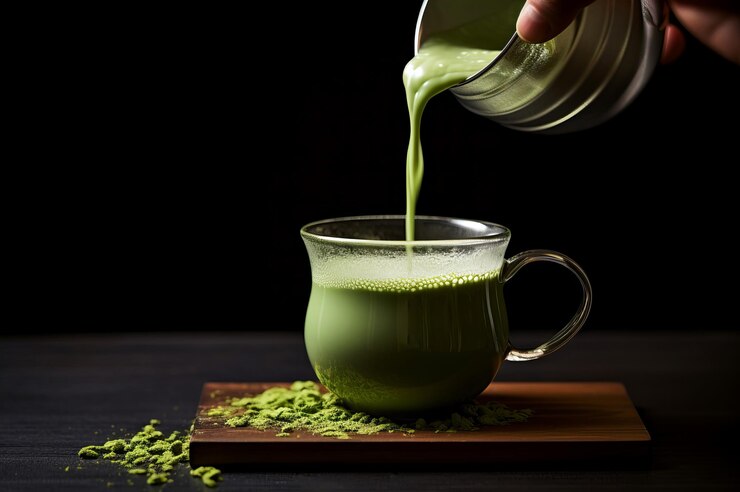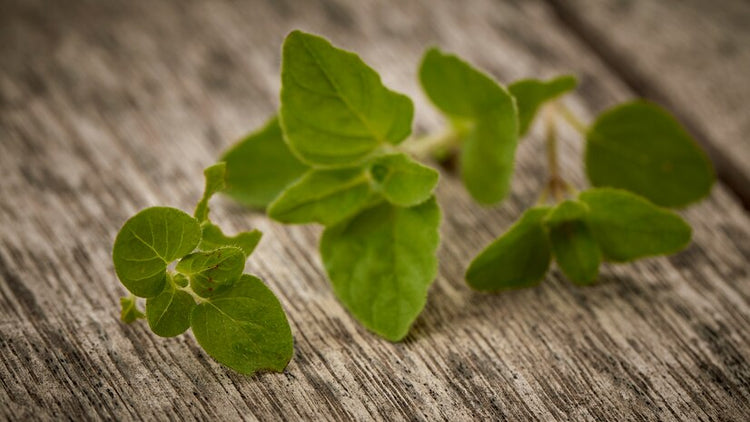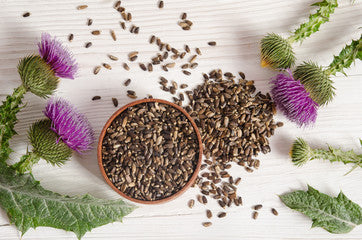10 Benefits of Matcha Tea
.webp?v=1741904925701)

Related products
Matcha tea, Originally from Japan, is a vibrant green powder that is more than just a popular drink. It's steeped with health benefits, making it revered by experts and savoured by wellness enthusiasts across continents.
The term 'matcha' refers to finely ground particles that encapsulate their true essence – ‘powdered’. Exceptionally different from both traditional teas and their contemporaries, matcha stands out due to its unique preparation method. Grown under shaded conditions to enhance chlorophyll production, these leaves are carefully hand-picked before being stone-ground into a fine powder. This stringent process ensures every cup retains not just potent flavour but also copious amounts of vitamins and antioxidants.
The spotlight on nutrition reveals that matcha teas’ rich antioxidant levels have placed it ahead against other superfoods such as blueberries or spinach according to their ORAC (oxygen radical absorbance capacity) values — an established parameter used for measuring antioxidant capacities in biological samples.

According to a review published in researchGate highlights that EGCG content is around 137 times greater than ingrained Chinese green tea which testifies its supremacy among beverages. Data released by Allied Market Research shows that the global matcha tea market was valued at $2,454.3 million in 2019, and is projected to reach $4,480.5 million by 2027, registering a CAGR of 7.1%. The rapid succession signifies the realisation among the masses about the health benefits linked with this tea.
On the usage front, Matcha has transcended its original beverage bounds. From spicing up trendy lattes to enriching exotic desserts or even accelerating skincare routines - matcha has now become a very important component in various recipes and wellness products. It's not just tea; it wholly embodies a healthy lifestyle.
Rich in Antioxidants

Harnessing the power of antioxidants, Matcha tea steps onto the global health scene as an exceptional dietary choice. Potently rich in natural compounds known for their antioxidative properties - it contributes remarkably to overall wellness.
Matcha tea astonishes with its antioxidant content, outperforming other 'superfoods'. According to a research study conducted in the Journal of Chromatography A, one cup brims with five times more antioxidants than goji berries and seven times that found in dark chocolate. It eclipses blueberries and spinach sixteen-fold on the ORAC (Oxygen Radical Absorbance Capacity) scale.
One specific group distinguishing Matcha is catechins - polyphenolic compounds exhibiting potent biological activities. Epigallocatechin gallate (EGCG), the most abundant type among them constitutes around 60% of total catechins present in matcha tea powder according to Medical Principles and Practice Journal- well-known for its cancer-fighting properties.
Promote Heart Health
An imperative contributor to cardiovascular well-being is the regular consumption of matcha tea. Synonymous with heart health promotion, the benefits this Japanese green tea powder bestows are anchored in scientific fact.
Matcha tea exerts a positive influence on several indicators related to heart health. Medical research published by NIH concluded that matcha tea consumption is associated with reduced risk of CVD, stroke, and CHD in overweight/obese T2D patients. This finding echoes sentiments expressed by leading cardiologist Dr. David Higgins from London City Hospital who affirms that "concentrated forms offered by matcha have been found favourable for the cardiac system."
Primarily attributed to rich epigallocatechin gallate (EGCG) content - an antioxidant lauded for its role in preventing inflammation and combating cell damage — it plays crucial roles within our circulatory system's function. When considering cholesterol levels, substantial decreases observed amongst those consuming three or more cups each day were documented underscoring match tea's impact on mitigating artery blockage risks associated with high LDL cholesterol levels.
Boosts Concentration and Memory

Adequate concentration is key to optimal cognitive function, while a sharp memory remains paramount for daily life performance. With its unique nutrient profile, matcha tea appears as an extraordinary aid in enhancing these two elements.
Study findings highlight that regular intake of matcha tea leads to improved alertness and memory up to eight hours post-consumption; underpinning its claim as a potent brain-enhancer. Dr Mark Moss from Northumbria University UK compliments such insights with his assertion - 'Rather than inducing jitters common with coffee consumption due high caffeine content, drinkers find themselves enjoying enhanced mental clarity.'
The efficacy lies within L-theanine presence – an amino acid known for promoting relaxation without drowsiness yet simultaneously improving attention span according to the National Institutes of Health (NIH). Owing eminent quantities found in only a few teas including varieties like matcha tea- it increases alpha wave activity within the brain facilitating a calm alert state thereby improving focus multi-tasking abilities over time.
Apart from raising positive mood states and alleviating stress levels through fostering natural calming effects mentioned earlier — Medical Principles Practice journal pinpointed EGCG's role – form catechin abundantly present within drinks providing neuroprotective benefits hence aiding preservation of neuronal health and potentially boosting long-term cognition functions ultimately strengthening overall mnemonic capacity individuals consuming beverage regularly extensively.
Boosts Immunity
Bolstering the immune system's defence mechanism, matcha tea navigates as an essential ally. Ingrained with potent elements conducive to health maintenance and disease prevention – it represents a philosophical shift towards proactive wellness.
Packed with vital vitamins such as Vitamin C, selenium, chromium, zinc, and magnesium - all critical in fortifying immunity - matcha serves optimally in boosting body defences. Epigallocatechin gallate (EGCG) forms approximately 60% of the total catechins stored within this unique powdered form. It has been found instrumental when combating bacterial and viral infections; hence playing crucial roles around our internal protective shield against diseases.
Matcha is particularly abundant in L-theanine—a rare amino acid promoting alpha wave production brain leading to increased relaxation and enhanced mood concurrently lending support to immune function over time clinical studies have shown notably evidenced review effects L-theanine on human cytokine network Brain Behavior & Immunity medical journal underlines importance role maintaining optimum immunological balance Dr. Emma Derbyshire Ph.D., Public Health Nutritionist reiterates "regular consumption does contribute a better-controlled response to external threats."
Aids In Weight Loss
Defeating the scale battle emerges as a global health goal. Interestingly, matcha tea has become a potent ally in this pursuit, recognized for its impactful role in accelerating weight loss.
Explanations lie predominantly within match tea’s impressive catechin content—epigallocatechin gallate (EGCG), known prominently for capsizing fat accumulation rates and boosting metabolic functions. A study revealed participants consuming green tea extract enriched with catechins reduced their body mass index and lost significantly more body weight than those who didn’t consume such an extract, establishing clear connections to EGCG effects.
Even when considering appetite regulation — an essential aspect of effective dietary management — evidence points favourably towards the inclusion of matcha beverage consumption habits that help reduce caloric intake promoting satiety thereby curbing overeating tendencies proving particularly helpful during restrictive diet periods.
Detoxifies the Body
Renowned for its detoxifying capabilities, matcha tea plays a pivotal role in purging harmful elements from our bodies. Its vibrant green color gives testament to an abundance of chlorophyll – a pigment competent at chelating heavy metals and chemical toxins that accumulate within us over time.
Matcha leaves are unique as they're grown under shade covers before harvesting. This practice amplifies chlorophyll production, resulting in higher concentrations than any other variety of green tea. Hence there's little wonder why frequent consumption equates with enhanced detoxification processes.
Dr Sarah Brewer MSc (Nutrition Medicine) indicates "Given that an elevated intake has been linked with decreased lead levels among individuals exposed to pollution, it points towards capacity to effectively cleanse the body." Chlorophyll binds contaminants promoting their removal via regular bodily functions like digestion and perspiration– essentially helping maintain a cleaner healthier system internally while projecting a radiant outward appearance externally.
Further substantiating these findings is matcha tea’s contribution in reducing blood pressure following a daily drinking routine for two weeks tested using high-sensitivity C-reactive protein (hs-CRP).
Regulates Blood Sugar Levels

Regular incorporation of matcha tea into a balanced diet contributes significantly to blood sugar level management. Famed for its deep green hue and robust taste, it continues to prove itself as an excellent natural aid in maintaining stable glucose levels.
Matcha contains uniquely high quantities of epigallocatechin gallate (EGCG), catechins renowned for their effects on insulin sensitivity. A study published by the American Journal of Clinical Nutrition discovered participants consuming green tea extract rich in EGCG showed improved insulin effectiveness compared with those taking a placebo.
Complementing these findings is research that displayed that intake of the said beverage led to lower fasting glucose and insulin concentrations - earmarking matcha tea’s positive role concerning metabolic health issues such as diabetes. Additionally, due consideration should be given to its fiber content adding substantial value regarding effective carbohydrate metabolization again substantiating this aromatic brew's worthiness within our diets from a glycaemic perspective too.
Increases Energy Levels and Endurance
Experience a natural surge in energy levels with the consumption of matcha tea. The transformative power afforded by this powdered green variant is scientifically linked to heightened endurance.
Studies published in the Food Research International journal disclosed noticeable improvements in physical performance following regular matcha intake among examined adults. Participants reported sharper alertness extending up to eight hours post-consumption - an evidence-based verdict aligning perfectly with Dr Mark Moss’s opinion at Northumbria University UK regarding its' mood-enhancing capabilities.
Matcha Tea encompasses 35mg caffeine per half teaspoon serving; less than espresso yet just enough for that gentle lift minus jitters commonly experienced from coffee overconsumption according to healthcare experts such as Nutritionist Amanda Hamilton hailing London City Hospital confirm smoother long-lasting energy boost compared to other caffeinated beverages providing 'crash-free’ experience throughout day due components like L-theanine — amino acid proven slow release caffeine into bloodstream hence stabilising blood sugar levels avoiding sudden drops sometimes felt after drinking beverages high sugars artificial sweeteners.
Anti-cancer Benefits
One of the key components in matcha tea, Epigallocatechin gallate (EGCG), possesses potent anti-carcinogenic properties. Loaded with an ample concentration of this specific catechin -- approximately 60% as per the Medical Principles and Practice journal's report--matcha tea emerges as a profound ally in cancer prevention.
Amongst numerous scientific studies probing EGCG’s potential role within the oncology spectrum, prominent research affirms its ability to inhibit tumour growth across varied types including skin, lung, and liver cancers.
Furthermore, it appears that the high concentrations present specifically within matcha offers higher health benefits than those found in other forms of green tea due to its 'shaded-growth' method which stimulates increased chlorophyll hence greater antioxidant production.
Promotes Healthy Skin
With an impressive composition boosting vitamins C and E, both acknowledged for their potent antioxidant properties, consistent consumption results in robust support against pollutants and harmful UV radiation - thereby reducing signs associated with premature aging such as wrinkles or fine lines.
Epigallocatechin gallate (EGCG), the most abundant catechin in matcha green tea resonates with Dr. Anjali Mahto, a UK-based Consultant Dermatologist's statement "Given its anti-inflammatory attributes EGCG strikes at acne-causing bacteria." Supporting her assertion is a clinical study published demonstrating EGCG’s efficacy in inhibiting Propionibacterium acnes — the primary bacterium behind inflammatory acne development.
Moreover, drinking one cup per day enhances blood flow to your skin resulting in an improved complexion resulting in a healthier glowing appearance unrequitedly sought after all over the world.
Takeaway
Matcha tea, abundant in antioxidants and catechins like ECGC, offers significant health benefits backed by science. Regular intake helps lower LDL cholesterol promoting heart health while improving cognitive functions such as alertness and memory enhancements. Matcha's rich nutrient profile protects skin against UV damage, fights acne-causing bacteria, and enhances the complexion for a healthy glow - making it an all-in-one beverage for overall wellbeing.
Frequently Asked Questions
What happens if I drink matcha tea every day?
Incorporating matcha tea into your daily routine has remarkable health implications. Regular consumption elevates antioxidant levels in the body, enhances cognitive functions such as memory and alertness, supports heart health by regulating LDL cholesterol levels, and significantly improves skin complexion.
What are the best benefits of matcha tea?
Matcha tea’s rich content of antioxidants like EGCG stands out. It possesses cancer-fighting properties and promotes cardiovascular wellness while its anti-inflammatory attributes aid against conditions like acne - promoting an overall radiant glow to the skin.
Why is matcha so powerful?
Matcha's potent power originates from its unique cultivation process that maximizes chlorophyll production which is associated with detoxifying abilities; alongside high-concentration catechins especially ECGC providing correlating health benefits.
What is the most beneficial way to drink matcha?
The most beneficial way to drink matcha tea involves whisking it into hot water until frothy - typically using a bamboo whisk that traditionally facilitates dissolving powder preventing clumps enhancing flavor and ultimately nutritional value extracted from each sip taken.
Can I drink matcha on an empty stomach?
While drinking Matcha tea on an empty stomach hasn’t been proven harmful some have reported slight nausea due to caffeine content present– hence recommended intake post-meal or snack if discomfort experienced during initial trials coexists ever again future sips couriered within new habit adopted ritual performed at dawn twilight alike every day.
What is the best time to drink matcha tea?
Regarding optimal time consumption hinges mostly on personal preference – yet morning and mid-afternoon hours are often picked due subtle caffeinated boost provided to uplift physical and mental state throughout remaining schedules set ahead one even before the sun ascends breaks away night’s embrace towards tomorrow awaiting just around corner mere sunrise distance apart.











 Rated Excellent by 26,523+ Reviews
Rated Excellent by 26,523+ Reviews